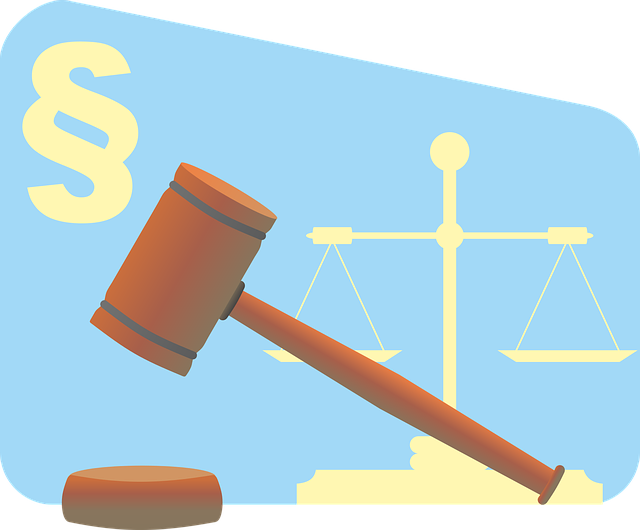Breach of contract disputes are common legal issues arising from unmet contractual obligations. Effective resolution requires understanding investigative and enforcement stages, including evidence gathering, damage assessment, and remedy determination. Early identification and swift action are crucial for successful outcomes. Strategies like mediation, arbitration, and negotiation offer cost-effective, mutually beneficial solutions compared to traditional litigation. Understanding the process, from identifying breaches to negotiating settlements or pursuing litigation, is vital for businesses and individuals to achieve fair resolutions while minimizing legal costs and delays.
Litigation Types: Navigating Breach of Contract Disputes and Resolving Them Effectively. This comprehensive guide explores how to resolve breach of contract disputes, covering understanding common scenarios, strategic litigation approaches, court processes, and alternative dispute resolution (ADR) methods. Learn about successful case studies and gain insights into defining and resolving contractual disagreements efficiently. Discover the steps involved in taking a case to court or exploring ADR options for optimal outcomes.
- Understanding Breach of Contract Disputes: Definition and Common Scenarios
- Types of Litigation Strategies for Resolving Contract Disagreements
- Legal Processes Involved in Taking a Case to Court
- Alternative Dispute Resolution (ADR) Methods for Contractual Issues
- Case Studies: Successful Resolution of Breach of Contract Cases
Understanding Breach of Contract Disputes: Definition and Common Scenarios

Breach of contract disputes are a common legal issue that arises when one party fails to fulfill their contractual obligations. These conflicts can involve a wide range of scenarios, from failure to deliver goods or services as promised to non-payment or misrepresentations in the agreement. Understanding these disputes is crucial for both corporate and individual clients looking to navigate their legal rights and responsibilities.
When addressing breach of contract cases, it’s essential to recognize the all stages of the investigative and enforcement process. This includes gathering evidence, assessing damages, and determining an appropriate remedy. Whether the dispute involves a challenging defense or requires pursuing winning verdicts, the goal is to ensure the affected party receives justice and compensation for any losses incurred. The key to successful resolution often lies in early identification of potential breaches and prompt action to mitigate further harm.
Types of Litigation Strategies for Resolving Contract Disagreements

When faced with contract disagreements, various litigation strategies can be employed to resolve disputes effectively. Understanding how to navigate these conflicts is crucial for maintaining strong business relationships and ensuring fair outcomes. One common approach involves mediation, where a neutral third party facilitates negotiations between the disputing parties, aiming to reach an agreement acceptable to both sides. This method promotes cooperative problem-solving and often results in mutually beneficial solutions.
Additionally, arbitration offers a more structured process. It involves presenting evidence and arguments to an arbitrator or panel, who then makes a binding decision. This alternative to traditional litigation is particularly attractive due to its speed and privacy. By engaging in these strategies, respective business, philanthropic, and political communities can efficiently manage breach of contract disputes, upholding the integrity of agreements while minimizing legal costs and time delays throughout all stages of the investigative and enforcement process.
Legal Processes Involved in Taking a Case to Court

Taking a case to court involves a complex legal process that requires careful navigation. For breach of contract disputes, the journey begins with identifying the specific contractual breach and assessing its impact on the parties involved. This step is crucial as it determines the legal framework applicable to the case, including the choice of law and jurisdiction. Once the dispute is defined, both parties must exchange initial disclosures, sharing relevant documents and information for review. This process aims to narrow down the issues and establish common ground before proceeding to more formal legal proceedings.
The next phase involves filing a lawsuit, where the aggrieved party (for his clients) serves legal papers on the opposing entity, officially initiating the litigation. The defendant then has a set period to respond, either admitting or denying the allegations and raising any defenses they may have. This is a critical stage as it sets the tone for the entire case, shaping the arguments presented in court. Achieving extraordinary results often hinges on robust legal strategies crafted during this phase, ensuring that all aspects of the dispute are thoroughly addressed, including potential counterclaims and cross-claims.
Alternative Dispute Resolution (ADR) Methods for Contractual Issues

When it comes to resolving breach of contract disputes, Alternative Dispute Resolution (ADR) methods offer a more efficient, cost-effective, and mutually agreeable solution compared to traditional litigation. ADR techniques such as mediation, arbitration, and negotiation allow parties to find creative solutions that cater to their unique needs, thereby fostering better relationships for future collaborations. For both corporate and individual clients, these processes can be particularly beneficial, ensuring swift resolutions without the high costs and prolonged timelines often associated with court cases.
Among these ADR methods, mediation stands out for its ability to facilitate open communication between disputing parties. A neutral third-party mediator guides discussions, helping each side express their concerns and work towards a mutually acceptable outcome. This approach has proven effective for resolving complex contractual issues across various sectors, including those involving philanthropic and political communities. With an unprecedented track record of success, ADR methods continue to gain traction as preferred avenues for dispute resolution in both commercial and personal matters.
Case Studies: Successful Resolution of Breach of Contract Cases

Breach of contract disputes can be complex, but understanding how to resolve them effectively is crucial for both businesses and individuals. Case studies offer valuable insights into successful resolutions, demonstrating practical strategies that can be applied in real-world scenarios. When a party fails to fulfill their contractual obligations, it can lead to significant legal implications, especially in high-stakes cases.
By examining these case studies, we learn the importance of early intervention and thorough investigation. For his clients, this often involves navigating all stages of the investigative and enforcement process, from identifying the breach to negotiating a settlement or pursuing litigation. The key to successful resolution lies in gathering robust evidence, understanding the specific contract terms, and communicating effectively throughout the dispute, ultimately leading to a favorable outcome.
Understanding breach of contract disputes and navigating the appropriate litigation strategies is key to resolving these disagreements effectively. Whether through traditional legal processes or alternative methods like ADR, knowing your options allows for a successful resolution that best suits your needs. By learning from case studies and adopting the right approach, individuals and businesses can efficiently manage and settle breach of contract cases. This ensures not just justice but also minimizes legal costs and time, ultimately fostering healthier business relationships.






